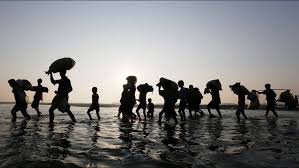The Widespread Use of Freebies: Implications for Welfare, Governance, and Fiscal Sustainability in India
Eman Syed The widespread use of freebies also known as “revdi culture” in the name of welfare has blurred the lines between state responsibility and vote-bank politics. Though popular among voters, such schemes often mask underlying fiscal stress and undermine long-term development, ultimately burdening the very citizens they claim to benefit. This article aims to […]










